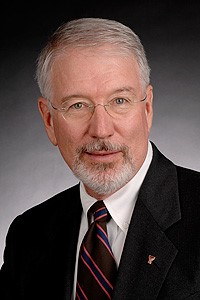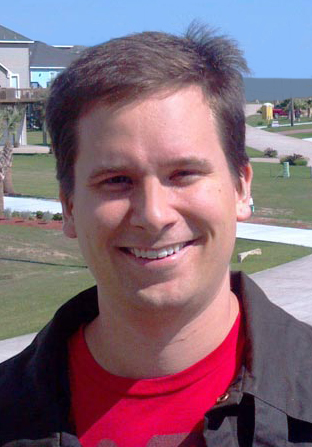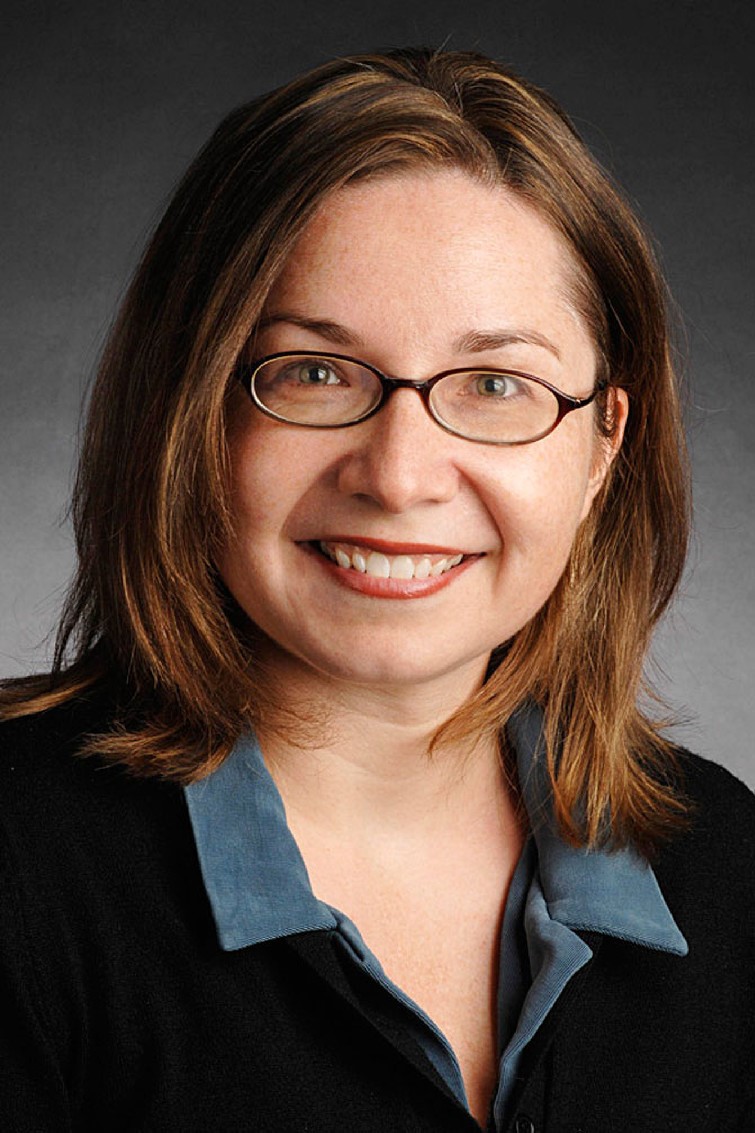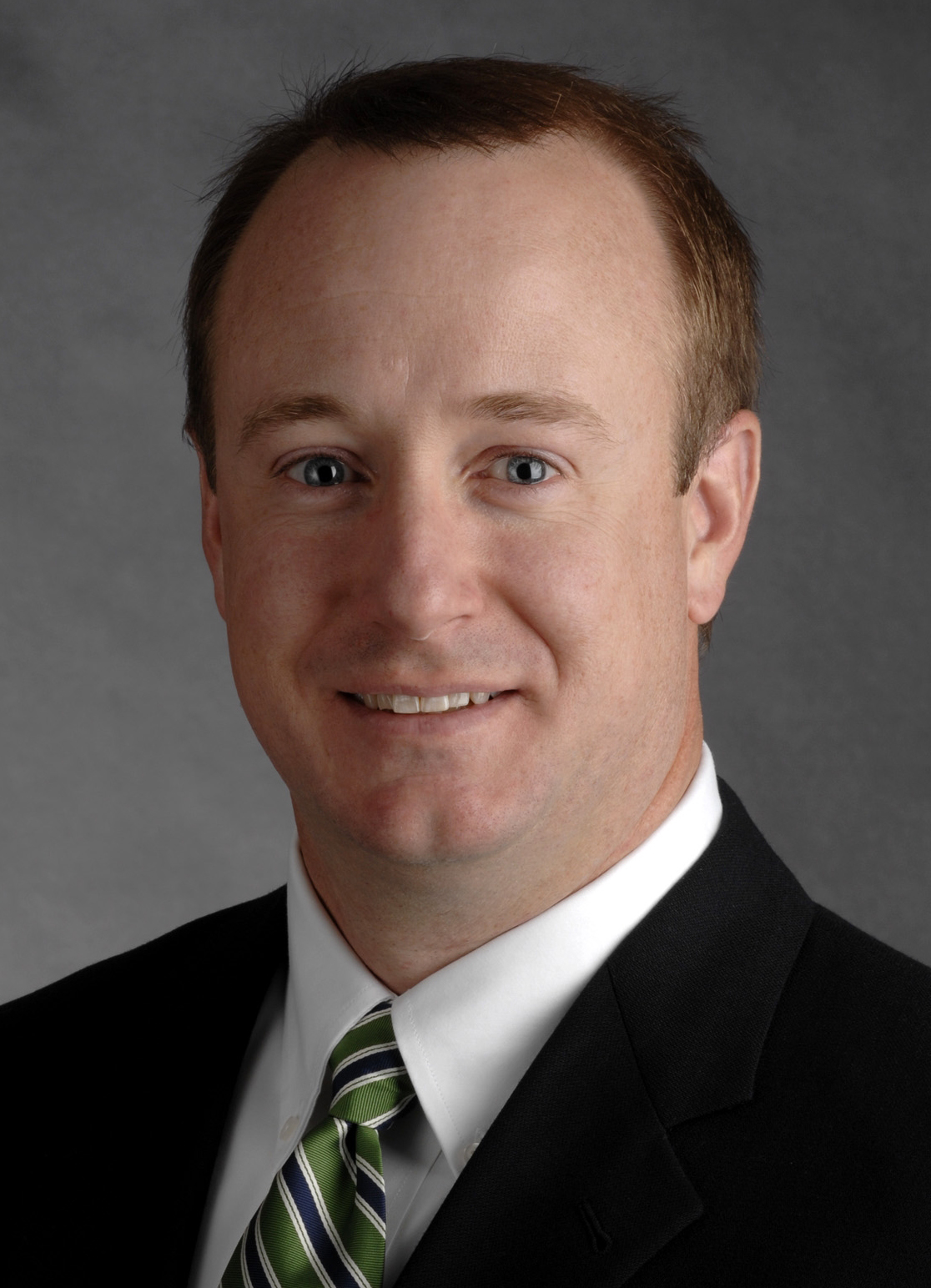A&S Faculty News
November 2017
Gamez Presents at Conference in Japan
Gerardo Gamez, Assistant Professor in the Department of Chemistry & Biochemistry, received a $500 International Travel Fund (ITF) award from Texas Tech University to give his invited talk entitled "Ultra-high Throughput Elemental Mapping via Glow Discharge Optical Emission Spectroscopy" at the Asia-Pacific Winter Conference on Plasma Spectrochemistry in Matsue, Japan, Nov. 12-17.
Kendall Named SETAC Fellow, Klaine Awardee
 Ron Kendall, Professor in the Department of Environmental Toxicology and founding
director of The Institute of Environmental and Human Health (TIEHH), received two
major awards from the Society of Environmental Toxicology and Chemistry (SETAC) during
the organization's 38th annual meeting Nov. 12-16 in Minneapolis. Kendall was named
a SETAC Fellow and also receive the 2017 Stephen J. Klaine Environmental Education
Award. "To be elected a SETAC Fellow is a significant honor and recognition from my
colleagues at SETAC in terms of my long-term scientific contribution to the field
of environmental toxicology. I am very appreciative of this recognition," Kendall
said. The SETAC Fellow designation represents only the top 1 percent of members in
the organization. Being elected a SETAC Fellow is among the highest honors the SETAC
scientific organization can bestow. The identification and appointment of Fellow status
is intended to provide additional recognition of excellence and contributions of SETAC
members to ecotoxicology, environmental chemistry, risk assessment and life cycle
assessment. "Receiving the Stephen J. Klaine Environmental Education Award from SETAC
is also deeply appreciated. When you spend a career being part of developing programs
and educational materials for the field of environmental toxicology, it is a significant
honor to be recognized by your colleagues for this contribution," Kendall said. The
Stephen J. Klaine Environmental Education Award was established to identify outstanding
contributions of either individuals or organizations contributing to environmental
education. "It is a great honor for any academic program to have a faculty member
selected for such a prestigious award as the Stephen J. Klaine Environmental Education
Award," said Steve Presley, Chair of the Department of Environmental Toxicology. "This
award not only recognizes Dr. Ron Kendall's significant and long-term contributions
to environmental education through educating other educators, but also reflects great
credit upon his many colleagues and alumni of the Department of Environmental Toxicology
and The Institute of Environmental and Human Health at Texas Tech University." Kendall
was chosen for his leadership in establishing three successful graduate programs in
environmental toxicology, including programs at Western Washington University, Clemson
University and Texas Tech. In addition, Kendall has provided leadership in developing
12 textbooks related to environmental toxicology and chemistry. Many current members
of SETAC emerged from graduate programs Kendall provided leadership in establishing
during his 37-year career. Kendall has been a pioneer in the area of wildlife toxicology
in SETAC. He is a past-president of SETAC and has served on the editorial board of
the scientific journal Environmental Toxicology and Chemistry for more than 30 years.
SETAC is a global organization with more than 6,000 members engaged in the study,
analysis and solution of environmental problems; the management and regulation of
natural resources; environmental education; and research and development. Its mission
is to support the development of principles and practices for the protection, enhancement
and management of sustainable environmental quality and ecosystem integrity.
Ron Kendall, Professor in the Department of Environmental Toxicology and founding
director of The Institute of Environmental and Human Health (TIEHH), received two
major awards from the Society of Environmental Toxicology and Chemistry (SETAC) during
the organization's 38th annual meeting Nov. 12-16 in Minneapolis. Kendall was named
a SETAC Fellow and also receive the 2017 Stephen J. Klaine Environmental Education
Award. "To be elected a SETAC Fellow is a significant honor and recognition from my
colleagues at SETAC in terms of my long-term scientific contribution to the field
of environmental toxicology. I am very appreciative of this recognition," Kendall
said. The SETAC Fellow designation represents only the top 1 percent of members in
the organization. Being elected a SETAC Fellow is among the highest honors the SETAC
scientific organization can bestow. The identification and appointment of Fellow status
is intended to provide additional recognition of excellence and contributions of SETAC
members to ecotoxicology, environmental chemistry, risk assessment and life cycle
assessment. "Receiving the Stephen J. Klaine Environmental Education Award from SETAC
is also deeply appreciated. When you spend a career being part of developing programs
and educational materials for the field of environmental toxicology, it is a significant
honor to be recognized by your colleagues for this contribution," Kendall said. The
Stephen J. Klaine Environmental Education Award was established to identify outstanding
contributions of either individuals or organizations contributing to environmental
education. "It is a great honor for any academic program to have a faculty member
selected for such a prestigious award as the Stephen J. Klaine Environmental Education
Award," said Steve Presley, Chair of the Department of Environmental Toxicology. "This
award not only recognizes Dr. Ron Kendall's significant and long-term contributions
to environmental education through educating other educators, but also reflects great
credit upon his many colleagues and alumni of the Department of Environmental Toxicology
and The Institute of Environmental and Human Health at Texas Tech University." Kendall
was chosen for his leadership in establishing three successful graduate programs in
environmental toxicology, including programs at Western Washington University, Clemson
University and Texas Tech. In addition, Kendall has provided leadership in developing
12 textbooks related to environmental toxicology and chemistry. Many current members
of SETAC emerged from graduate programs Kendall provided leadership in establishing
during his 37-year career. Kendall has been a pioneer in the area of wildlife toxicology
in SETAC. He is a past-president of SETAC and has served on the editorial board of
the scientific journal Environmental Toxicology and Chemistry for more than 30 years.
SETAC is a global organization with more than 6,000 members engaged in the study,
analysis and solution of environmental problems; the management and regulation of
natural resources; environmental education; and research and development. Its mission
is to support the development of principles and practices for the protection, enhancement
and management of sustainable environmental quality and ecosystem integrity.
Phillips Receives Grant to Study Cotton Rat
Caleb Phillips, Assistant Professor in the Department of Biological Sciences and Curator of Genetic Resources Collection at the Natural Science Research Laboratory, received grant funds of $99,588 from the U.S. Fish & Wildlife Service/Texas Parks & Wildlife Department for his research project, "Status, Distribution, Morphology and Genetics of Sigmodon fulviventer dalquesti [tawny-bellied cotton rat] in the Chihuahuan Desert Ecoregion." The grant was announced by TTU's Office of Research Services the week ending Nov. 8.
Lewis Gets Grant for Workforce Education
Col. David Lewis, M.A. (USAF Ret.), Assistant Professor of Practice in the Department of Political Science, received incremental grant funds of $9,100—with an anticipated total funding amount of $36,400—from the HRSA/TTUHSC for his work on the Behavioral Health Workforce Education and Training (BHWET) Program. The grant was announced by TTU's Office of Research Services the week ending Nov. 8.
Maloney Gets Grant to Study Campus Carry
Patricia Maloney, Assistant Professor in the Department of Sociology, Anthropology & Social Work, received grant funds of $7,982 from the American Sociological Association for her research project, "Longitudinal and Contagion Effects of Campus Carry on Faculty and Students at a Large Southwestern State University." The grant was announced by TTU's Office of Research Services the week ending Nov. 8.
Davis Studies Reasoning of Disease Spread
 Tyler Davis, Assistant Professor in the Department of Psychological Sciences, is lead
author of the study, "Can you catch Ebola from a stork bite? Inductive reasoning influences
generalization of perceived zoonosis risk." On Nov. 8, Science Daily published an article about the study, in which Molly Ireland and Jason Van Allen, both Assistant Professors
in the Department of Psychological Sciences; Micah Goldwater from the University of
Sydney's School of Psychology; and independent research consultant Nicholas Gaylord
also took part. Science Daily summarized the study this way: "Psychologists have applied
science to health communication and found that the way the message is conveyed can
have a significant impact on awareness about diseases, like Ebola, that jump from
animals to people. The researchers found that the more animals that are known to carry
a virus, the more people will perceive a risk from any animal." The story, provided
to Science Daily by the University of Sydney, continued: "We've been interested for
a while in how everyday people reason about risks associated with animal contact,"
Davis said. "An overwhelming number of new emerging diseases come from animal sources
and get introduced to the human population as a result of animal contact. Thus, everyday
people without expertise in infectious diseases or how to interact with animals are
at the front lines of potential future pandemics, yet very little is known about how
they reason about the risks of animal contact." Davis said this study tested whether
people use knowledge about the range of animals that are susceptible to a disease
when judging their own risks of contact with a specific type of animal. The researchers
measured this in a variety of ways, including the likelihood of reporting animal bites
to a health professional and the perceived safety of eating different animals' meat. The
study found that risk perception increases in two different scenarios. First, if the
animal you encountered is similar to a type of animal you believe may carry a disease—for
instance, encountering a coyote when you know that local foxes can carry a disease—you
may perceive a greater risk to your own health. Second, if you know that a particular
disease is found in a wide variety of animals, you may perceive a greater likelihood
that the animal you encountered could carry it—for example, if bats, cats and birds
all carry a disease, then the coyote you encountered may well pose a risk, as well. "Although
there has been a lot of research on inductive reasoning, this research has not been
widely applied to health behaviors in general and perception of disease risk from
animals in particular," Davis said. "We're also very hopeful that this work can inform
better public health messaging in the developing world, where awareness of risks can
be very low and responses to outbreaks are often slow and costly."
Tyler Davis, Assistant Professor in the Department of Psychological Sciences, is lead
author of the study, "Can you catch Ebola from a stork bite? Inductive reasoning influences
generalization of perceived zoonosis risk." On Nov. 8, Science Daily published an article about the study, in which Molly Ireland and Jason Van Allen, both Assistant Professors
in the Department of Psychological Sciences; Micah Goldwater from the University of
Sydney's School of Psychology; and independent research consultant Nicholas Gaylord
also took part. Science Daily summarized the study this way: "Psychologists have applied
science to health communication and found that the way the message is conveyed can
have a significant impact on awareness about diseases, like Ebola, that jump from
animals to people. The researchers found that the more animals that are known to carry
a virus, the more people will perceive a risk from any animal." The story, provided
to Science Daily by the University of Sydney, continued: "We've been interested for
a while in how everyday people reason about risks associated with animal contact,"
Davis said. "An overwhelming number of new emerging diseases come from animal sources
and get introduced to the human population as a result of animal contact. Thus, everyday
people without expertise in infectious diseases or how to interact with animals are
at the front lines of potential future pandemics, yet very little is known about how
they reason about the risks of animal contact." Davis said this study tested whether
people use knowledge about the range of animals that are susceptible to a disease
when judging their own risks of contact with a specific type of animal. The researchers
measured this in a variety of ways, including the likelihood of reporting animal bites
to a health professional and the perceived safety of eating different animals' meat. The
study found that risk perception increases in two different scenarios. First, if the
animal you encountered is similar to a type of animal you believe may carry a disease—for
instance, encountering a coyote when you know that local foxes can carry a disease—you
may perceive a greater risk to your own health. Second, if you know that a particular
disease is found in a wide variety of animals, you may perceive a greater likelihood
that the animal you encountered could carry it—for example, if bats, cats and birds
all carry a disease, then the coyote you encountered may well pose a risk, as well. "Although
there has been a lot of research on inductive reasoning, this research has not been
widely applied to health behaviors in general and perception of disease risk from
animals in particular," Davis said. "We're also very hopeful that this work can inform
better public health messaging in the developing world, where awareness of risks can
be very low and responses to outbreaks are often slow and costly."
Hayhoe a Lead Author of Climate Report
 Katharine Hayhoe, Professor in the Department of Political Science and Director of
TTU's Climate Science Center, is one of the lead authors of the Climate Science Special Report (CSSR), released Nov. 3 by The U.S. Global Change Research Program, a consortium of 13 federal
agencies and a 60-member federal steering committee. It's the most comprehensive look
at climate science and its effects to date. The CSSR is part one of the Fourth National
Climate Assessment (NCA4), a required quadrennial assessment authorized in 1989 by
Congress in the Global Change Research Act (GCRA) of 1990. Hayhoe authored the chapter
on climate models, scenarios and projections, and co-authored the chapters on temperature
trends and the potential for surprises in the climate system. "This report is the
most up-to-date summary we have on how the climate is changing and what that means
for our planet," Hayhoe said. "The main findings of this report confirm what we've
known for decades—climate is changing, humans are responsible and the risks are serious.
However, it also quantifies new science—what's happening in the Arctic and the oceans,
and the potential for unforeseen impacts. It puts numbers on how much carbon we can
produce if we want to limit how much and how fast the world warms." Also released
Nov. 3 was the public review draft of the second part of NCA4, which addresses regional
and sectional impacts. Hayhoe served as a lead author on this report as well, authoring
chapter two, "Our Changing Climate." She previously authored the Second and Third
National Climate Assessments, and NCA4 builds on those findings.
Katharine Hayhoe, Professor in the Department of Political Science and Director of
TTU's Climate Science Center, is one of the lead authors of the Climate Science Special Report (CSSR), released Nov. 3 by The U.S. Global Change Research Program, a consortium of 13 federal
agencies and a 60-member federal steering committee. It's the most comprehensive look
at climate science and its effects to date. The CSSR is part one of the Fourth National
Climate Assessment (NCA4), a required quadrennial assessment authorized in 1989 by
Congress in the Global Change Research Act (GCRA) of 1990. Hayhoe authored the chapter
on climate models, scenarios and projections, and co-authored the chapters on temperature
trends and the potential for surprises in the climate system. "This report is the
most up-to-date summary we have on how the climate is changing and what that means
for our planet," Hayhoe said. "The main findings of this report confirm what we've
known for decades—climate is changing, humans are responsible and the risks are serious.
However, it also quantifies new science—what's happening in the Arctic and the oceans,
and the potential for unforeseen impacts. It puts numbers on how much carbon we can
produce if we want to limit how much and how fast the world warms." Also released
Nov. 3 was the public review draft of the second part of NCA4, which addresses regional
and sectional impacts. Hayhoe served as a lead author on this report as well, authoring
chapter two, "Our Changing Climate." She previously authored the Second and Third
National Climate Assessments, and NCA4 builds on those findings.
Mechref Co-Chairs Glycosciences Panel
Yehia Mechref, Professor and Chair of the Department of Chemistry & Biochemistry, co-chaired the National Heart, Lung, and Blood Institute Special Emphasis Panel at the National Career Development Consortium for Excellence in Glycosciences (K12), 2018/01 ZHL1 CSR-J (F1) 1, Nov. 3.
Mayer Co-Authors Analysis of Project
 Greg Mayer, Associate Professor of Molecular Toxicology in the Department of Environmental
Toxicology, is co-author of "A communal catalogue reveals Earth's multiscale microbial
diversity," published online Nov. 1 in the journal Nature. The abstract reads thusly: "Our growing awareness of the microbial world's importance
and diversity contrasts starkly with our limited understanding of its fundamental
structure. Despite recent advances in DNA sequencing, a lack of standardized protocols
and common analytical frameworks impedes comparisons among studies, hindering the
development of global inferences about microbial life on Earth. Here we present a
meta-analysis of microbial community samples collected by hundreds of researchers
for the Earth Microbiome Project. Coordinated protocols and new analytical methods,
particularly the use of exact sequences instead of clustered operational taxonomic
units, enable bacterial and archaeal ribosomal RNA gene sequences to be followed across
multiple studies and allow us to explore patterns of diversity at an unprecedented
scale. The result is both a reference database giving global context to DNA sequence
data and a framework for incorporating data from future studies, fostering increasingly
complete characterization of Earth's microbial diversity." Further into the main body
of the paper, the authors explain more fully the purpose of the Earth Microbiome Project (EMP), which was "...founded in 2010 to sample the Earth's microbial communities
at an unprecedented scale in order to advance our understanding of the organizing
biogeographic principles that govern microbial community structure. We recognized
that open and collaborative science, including scientific crowdsourcing and standardized
methods, would help to reduce technical variation among individual studies, which
can overwhelm biological variation and make general trends difficult to detect. Comprising
around 100 studies, over half of which have yielded peer-reviewed publications, the
EMP has now dwarfed by 100-fold the sampling and sequencing depth of earlier meta-analysis
efforts; concurrently, powerful analysis tools have been developed, opening a new
and larger window into the distribution of microbial diversity on Earth. In establishing
a scalable framework to catalogue microbiota globally, we provide both a resource
for the exploration of myriad questions and a starting point for the guided acquisition
of new data to answer them."
Greg Mayer, Associate Professor of Molecular Toxicology in the Department of Environmental
Toxicology, is co-author of "A communal catalogue reveals Earth's multiscale microbial
diversity," published online Nov. 1 in the journal Nature. The abstract reads thusly: "Our growing awareness of the microbial world's importance
and diversity contrasts starkly with our limited understanding of its fundamental
structure. Despite recent advances in DNA sequencing, a lack of standardized protocols
and common analytical frameworks impedes comparisons among studies, hindering the
development of global inferences about microbial life on Earth. Here we present a
meta-analysis of microbial community samples collected by hundreds of researchers
for the Earth Microbiome Project. Coordinated protocols and new analytical methods,
particularly the use of exact sequences instead of clustered operational taxonomic
units, enable bacterial and archaeal ribosomal RNA gene sequences to be followed across
multiple studies and allow us to explore patterns of diversity at an unprecedented
scale. The result is both a reference database giving global context to DNA sequence
data and a framework for incorporating data from future studies, fostering increasingly
complete characterization of Earth's microbial diversity." Further into the main body
of the paper, the authors explain more fully the purpose of the Earth Microbiome Project (EMP), which was "...founded in 2010 to sample the Earth's microbial communities
at an unprecedented scale in order to advance our understanding of the organizing
biogeographic principles that govern microbial community structure. We recognized
that open and collaborative science, including scientific crowdsourcing and standardized
methods, would help to reduce technical variation among individual studies, which
can overwhelm biological variation and make general trends difficult to detect. Comprising
around 100 studies, over half of which have yielded peer-reviewed publications, the
EMP has now dwarfed by 100-fold the sampling and sequencing depth of earlier meta-analysis
efforts; concurrently, powerful analysis tools have been developed, opening a new
and larger window into the distribution of microbial diversity on Earth. In establishing
a scalable framework to catalogue microbiota globally, we provide both a resource
for the exploration of myriad questions and a starting point for the guided acquisition
of new data to answer them."
Morales Receives Visiting Professorship in Brazil
Jorge A. Morales, Associate Professor in the Department of Chemistry & Biochemistry, has received a visiting professor position at the level of full professor in the Department of Chemistry at the Federal University of Pernambuco, Recife, Pernambuco, Brazil. This is a six-month position starting on June 1, 2018. During his stay in Brazil, Morales will conduct theoretical chemistry research with several groups in the University of Pernambuco and will teach a graduate course on theoretical chemistry.
College of Arts & Sciences
-
Address
Texas Tech University, Box 41034, Lubbock, TX 79409-1034 -
Phone
806.742.3831 -
Email
arts-and-sciences@ttu.edu
